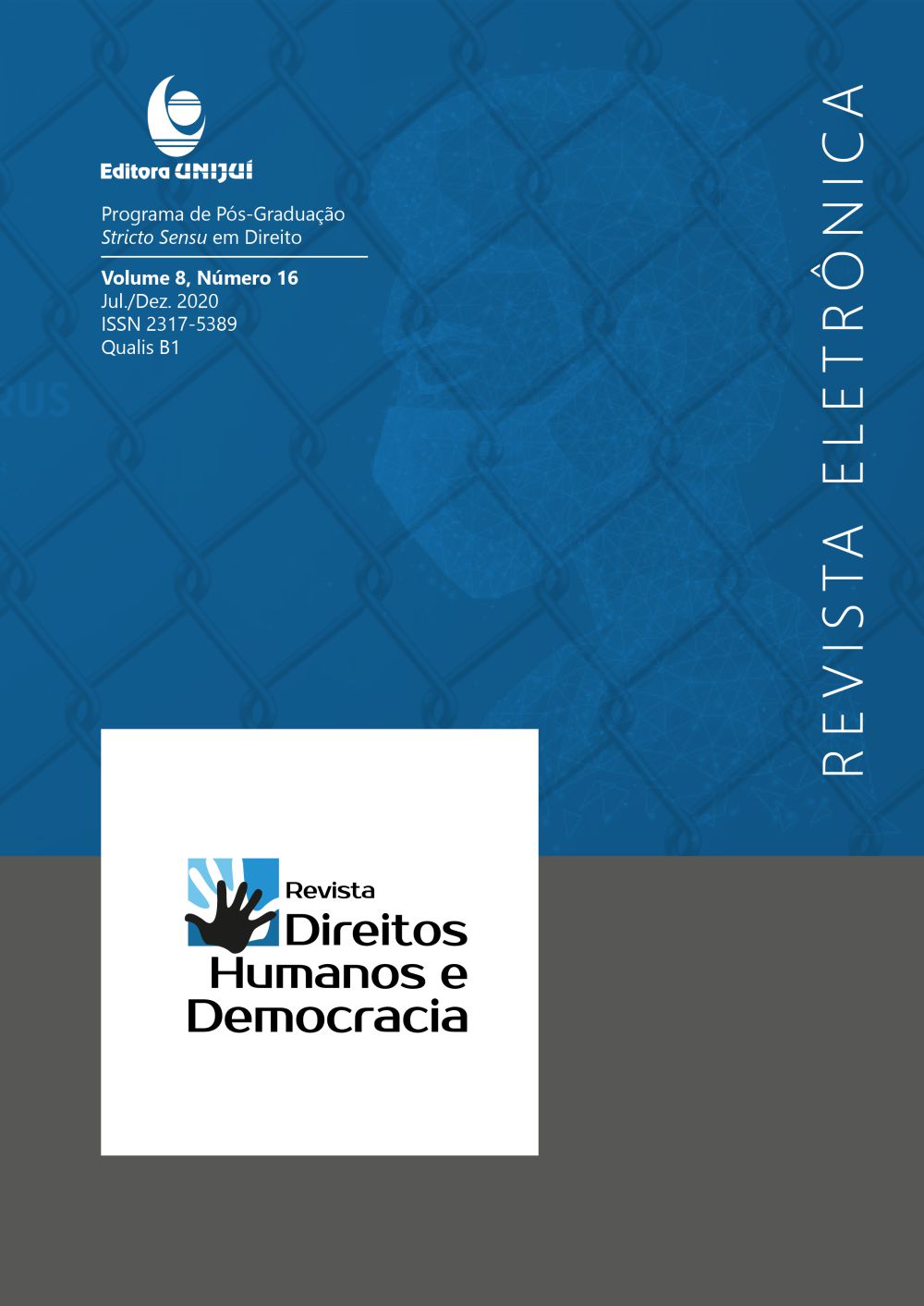O ENSINO JURÍDICO E A PERSPECTIVA UNIVERSITÁRIA HUMANÍSTICA
DOI:
https://doi.org/10.21527/2317-5389.2020.16.164-176Keywords:
Dimensão crítico-reflexiva. Formação humana. Hermenêutica. Operatório-instrumental. Sociabilidade humana.Abstract
Este artigo é uma reflexão sobre a formação humana em cursos jurídicos, orientada a partir da ideia de que uma formação sólida pode contribuir para o fortalecimento das relações humanas e da sociabilidade. Trata-se de pesquisa qualitativa com reflexão a partir de estudo teórico que tematiza a ideia de que a educação tem o papel fundamental de desenvolver a humanidade do homem e que formação jurídica não pode pretender apenas ter um viés operatório-instrumental. Nesse contexto propõe a necessidade de um debate sobre a linguagem, o simbólico e o desenvolvimento do pensamento crítico-reflexivo nos cursos jurídicos. No seu desenvolvimento analisa a necessidade de uma abordagem de viés humanista como preocupação com as futuras gerações, que o ensino jurídico universitário não deve ser apenas um instrumento de conservação da tradição ou de leitura da legalidade, mas deve desenvolver a capacidade crítico-reflexiva. Por fim, defende a ideia de que uma formação sólida pode contribuir para o fortalecimento das relações humanas e da sociabilidade, de modo que esteja comprometida com a justiça social e que seja entendida como uma ampliação dos horizontes para uma atuação comprometida na sociedade, o que somente é possível com uma formação integral do ser humano.
Downloads
Published
How to Cite
Issue
Section
License
By publishing in the Revista Direitos Humanos e Democracia, authors agree to the following terms:
Articles are licensed under the Creative Commons Atribuição 4.0 Internacional (CC BY 4.0), which allows:
Share — copy and redistribute the material in any medium or format;
Adapt — remix, transform, and build upon the material for any purpose, including commercial use.
These permissions are irrevocable, provided the following terms are respected:
Attribution — authors must be properly credited, with a link to the license and indication of any modifications made;
No additional restrictions — no legal or technological measures may be applied that restrict the use permitted by the license.
Notices:
The license does not apply to elements in the public domain or covered by legal exceptions.
The license does not grant all rights required for specific uses (e.g., image rights, privacy, or moral rights).
The journal is not responsible for opinions expressed in the articles, which remain the sole responsibility of the authors. The Editor, with the support of the Editorial Committee, reserves the right to suggest or request modifications when necessary.
Only original scientific articles presenting research results of interest, not previously published or simultaneously submitted to another journal with the same purpose, will be accepted.
References to trademarks or specific products are intended solely for identification purposes and do not imply any promotional endorsement by the authors or the journal.
License Agreement: Authors retain copyright over their articles and grant the Revista Direitos Humanos e Democracia the right of first publication.













